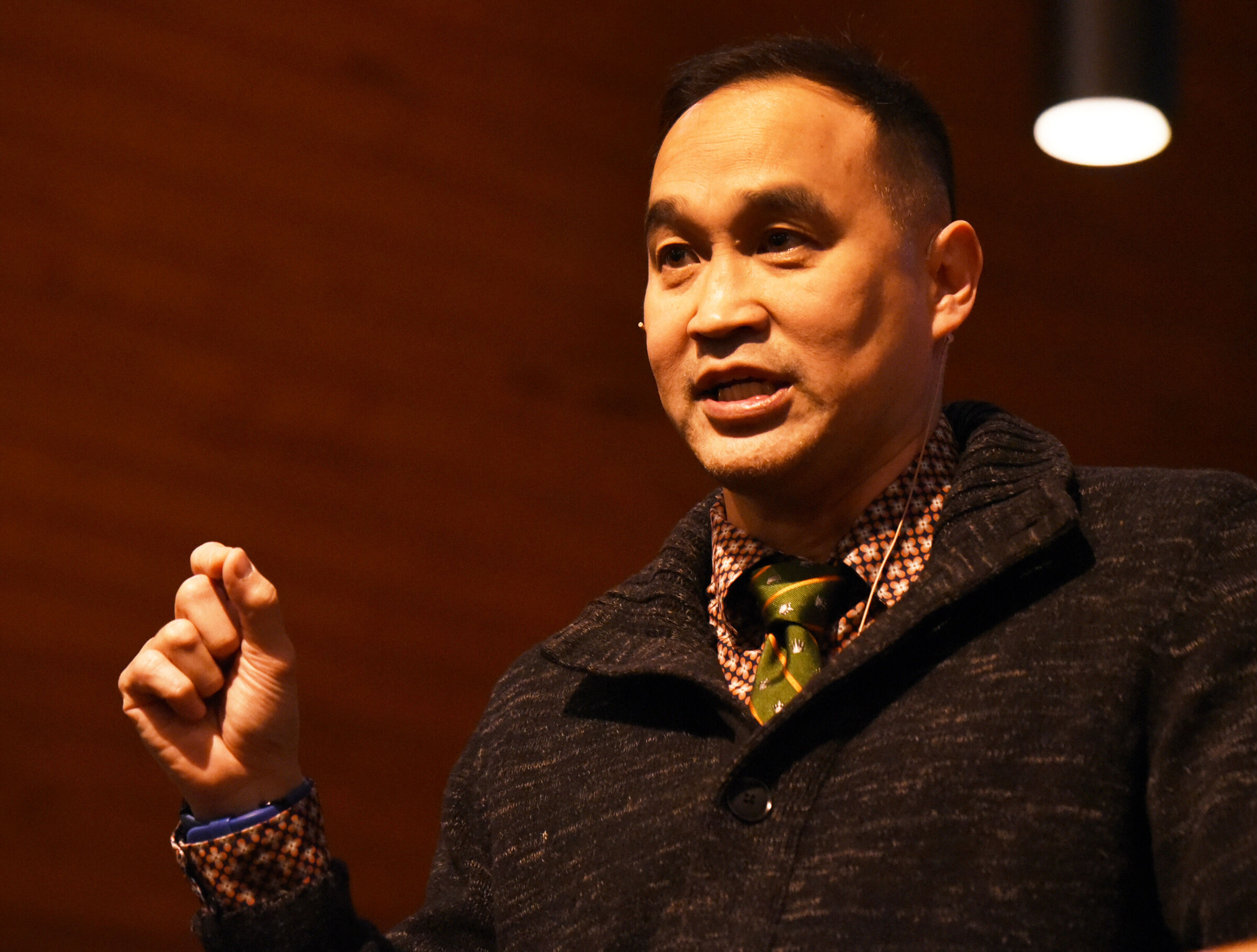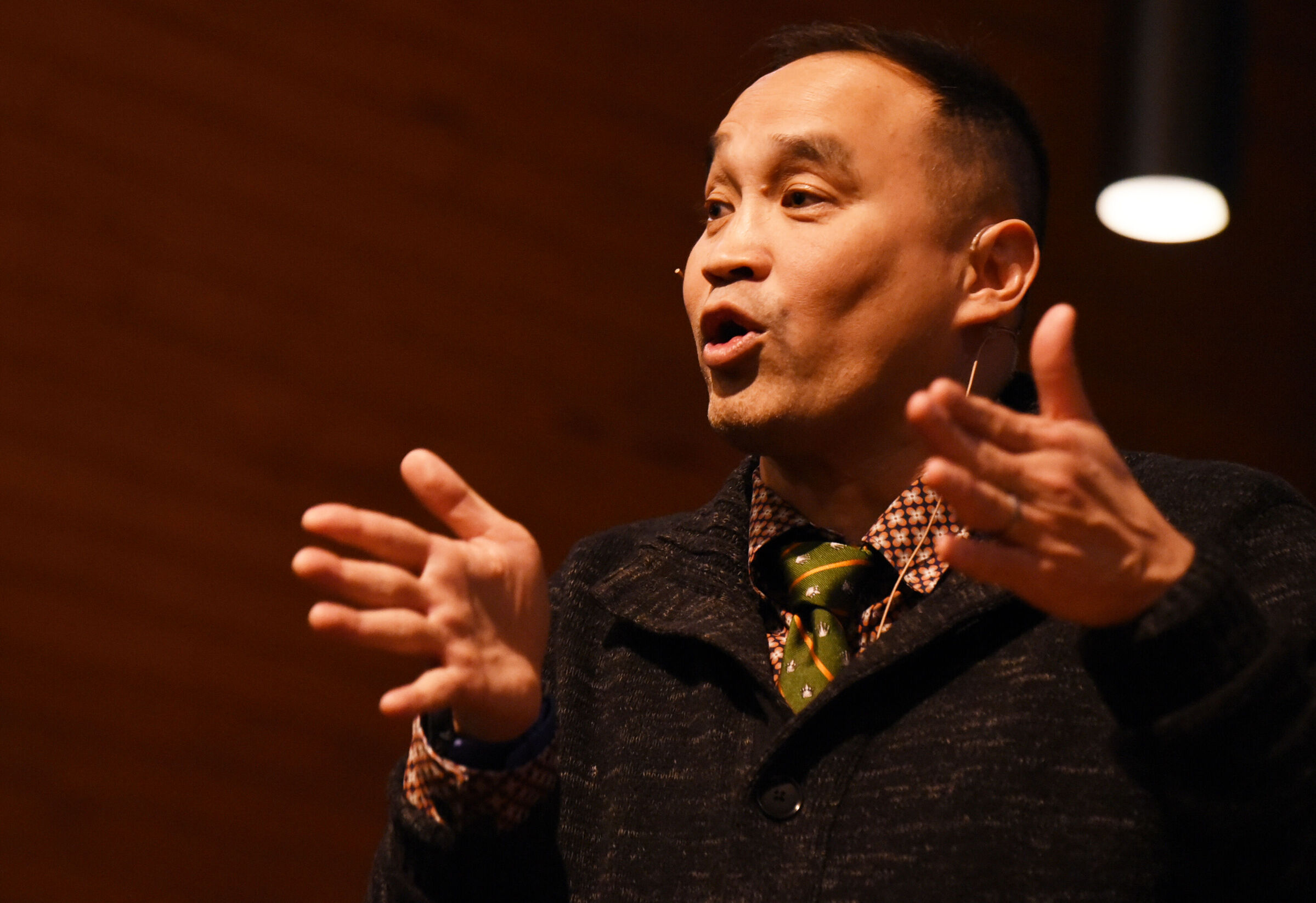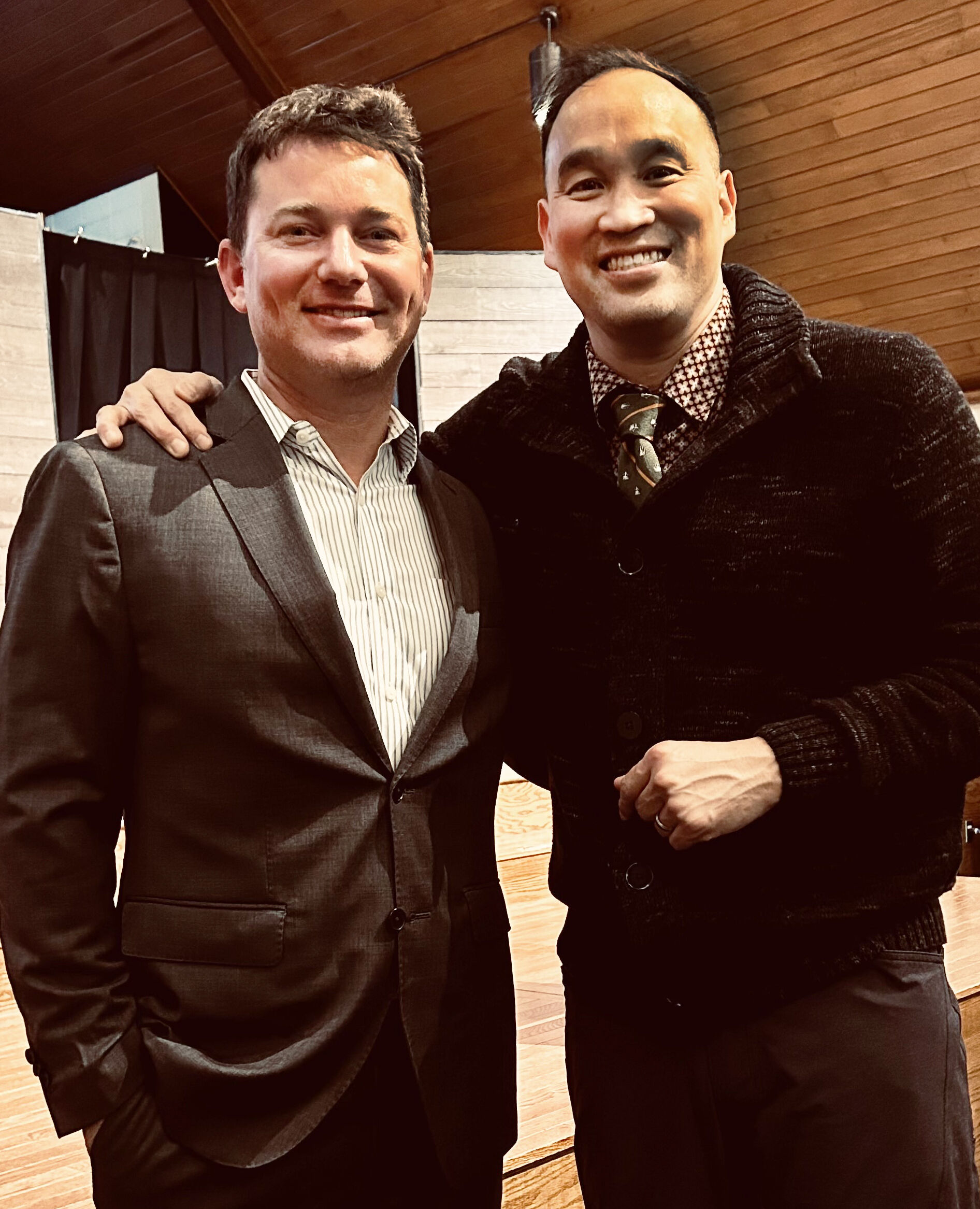Ending racism is topic of this year's Andrews Lecture
Published: March 18, 2024
Author: Dave Bell
As an Asian-American, Jonathan Tran knows the reality of discrimination in America.
“I came to America at the end of three wars between America and Asian countries – Japan, Korea, and Vietnam,” said Tran, who now serves as an Associate Professor of Theology at Baylor University. “People in America viewed me as perilous … not just a foreigner, but a problematic one. As a result, racism was a daily reality in my life.”
But Tran was determined to change that reality.
 To do so, he has taught and written on the topic – including a book published in 2021 titled “Asian Americans and the Spirit of Racial Capitalism.” Tran was recently invited to the Greenville University campus to deliver the seventh annual Andrews Lecture On Christian Unity. He was introduced by Dr. Ben Wayman, chair of GU’s Bastian School of Theology, Philosophy, and Ministry, whom he met while they were both enrolled in the Duke University Divinity School.
To do so, he has taught and written on the topic – including a book published in 2021 titled “Asian Americans and the Spirit of Racial Capitalism.” Tran was recently invited to the Greenville University campus to deliver the seventh annual Andrews Lecture On Christian Unity. He was introduced by Dr. Ben Wayman, chair of GU’s Bastian School of Theology, Philosophy, and Ministry, whom he met while they were both enrolled in the Duke University Divinity School.
As a person of Vietnamese descent, Tran said he was impacted by racism, but simultaneously ignored by anti-racism efforts that focused only on righting the wrongs experienced by African-Americans.
“I learned that I didn’t count,” he said. “My experiences didn’t seem to matter. In short, I was marginalized by racism, and marginalized again by anti-racism efforts. I didn’t count in efforts to expand diversity.”
That reality, he said, led him to write his book about racism from the perspective of an Asian-American.
“I tried to convert the pain I experienced into power,” he said. “I wanted to discover more about American racism from the perspective of those on the margins.”
As he researched, Tran found two competing accounts of racism.
The orthodox view holds that racism begins as an individual or personal issue – when individuals hold inaccurate views or assumptions about people of a different race – but then expands to a systemic or institutional practice. Efforts to address that sort of racism, Tran said, often focus on changing attitudes through diversity training.
A second type of racism, he said, is racial capitalism. Under that system, resources and services are denied to minorities, who are then relegated to lives of poverty and oppression, based simply on the color of their skin. Racial capitalism is perpetuated, he said, because “it creates an infrastructure in things like housing and services that conspires against black and brown lives.”
 Against those flawed options, Tran proposes what he terms a Divine Economy as the solution to racism.
Against those flawed options, Tran proposes what he terms a Divine Economy as the solution to racism.
“The good news for Christians is that we believe that sin is a bit player in the larger story of the victory of justice and mercy,” he said. “And it’s only through the Christian faith that we can tell a more hopeful and honest story. The Divine Economy model holds that God wins … that justice and mercy are natural to the world because they are natural to God. This is accomplished by ordinary Christians leaning into the existing system and demanding that we ought to live in a new way.”
In his book, Tran shared the story of a religious community – Redeemer Community Church – established several years ago in San Francisco by students from Stanford University and the University of California at Berkeley. Those students launched businesses and schools that offered employment and education opportunities for residents in a historically disadvantaged part of San Francisco. In 1997, the students also started a software consulting firm called Dayspring Partners, which provides software development, web design, and brand design. They also established a small-business loan fund that helps establish and grow businesses in the Bayview neighborhood.
“Those students met Jesus and recognized that he is on the side of the oppressed,” Tran said. “As a result, they wanted to do what they could to help the oppressed and marginalized in that poor part of the city. They recognized that the fight against racism doesn’t require some heroic effort; but rather, we must spread love and expand the reach of the Divine Economy until its work is finished.
“The truth and beauty of the Christian Gospel is that it is an invitation to call out racist practices and offer people fuller lives than they could experience under those conditions.”
Following his address, Tran answered questions from the audience. One person asked Tran what practical things Christians can do to fight institutionalized racism.
“Like those students at Stanford and Berkeley, we need to follow Jesus one step at a time,” he said. “We must learn the stories of what God has done in San Francisco and other places, and then ask how we can live in such a way that ends injustices around us. This is one of the big questions of our age: How do we call the church to something different, something better?”
 After the program, Wayman said that Tran used his experiences to challenge listeners to think differently about righting racial wrongs.
After the program, Wayman said that Tran used his experiences to challenge listeners to think differently about righting racial wrongs.
“Dr. Tran’s Divine Economy strategy was a timely topic for the Andrews Lecture,” said Wayman, pictured above with Tran. “He helped us see how the church offers the world a community shaped by God’s economy of abundance and generosity rather than the scarce economies of a world in the grip of domination and exploitation. He helped us imagine concrete forms of life, redistribution, justice, and mercy that indicate ways in which we might become a faithful Christian community.”
If you are interested in hearing the entire lecture, you can check it out on GU's YouTube channel here.
